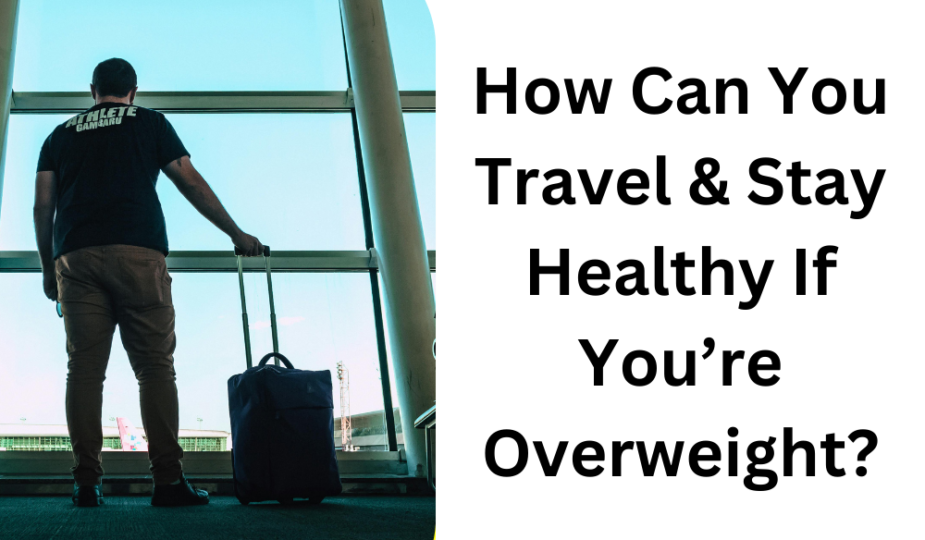Lifestyle management is key to unlocking your complete capacity. If you read this website you may have come across our article on this specific point. But not everyone has started their journey to unlock the boundless benefits available to them. Some are still trying to get over some basic hurdles to make life-altering changes that benefit them for years to come.
Let’s take for example, taking a trip on a health plan as it can pose some challenges for the bigger picture. Beating the heat can be more important if you’re more likely to get dehydrated more quickly. You may not have access to the foods you’d normally enjoy at home. Exercise might look different outside of your local gym or walking routes. Summer workouts can help you stay fit while exploring new destinations. Jet lag and the inherent possibility of disruption to sleep when crossing time zones can wreak havoc on even the most optimally organized schedule. So, with that in mind, let’s take a look at some tips to stay healthy on holiday.
Be prepared
Pack smart. It can be stressful to be away from home comforts so take some basics that’ll stand you in good stead on the road. A reusable water bottle is always useful, particularly if one is in a destination where tap water isn’t potable – hotels will often have coolers that you can fill up on before heading out. Motivate yourself to work out while traveling by exploring new destinations and staying active to maintain your energy and overall well-being. Non-perishable healthy snacks like nuts, jerky, and protein bars will keep you fueled for the day and help avoid grabbing junk food – and remember not all countries’ food labeling standards are the same, so what may look healthy overseas could very well be loaded with sugar. Having some basic medications like ibuprofen and cortisone means you won’t be subject to local pharmacy opening hours for headaches or bug bites.
Be active
While the concept of taking 10,000 steps per day has come under scrutiny lately, there’s no doubt that seeing the sights of a city is better done in the open air than looking out a car window. Unless you’re staying strictly in the sand on a beach holiday, you’ll likely do more walking on vacation than at home. The average American walks around two miles per day, however, a Walt Disney World vacation sees most tourists at least tripling that figure. It’s worthwhile doing some research into hotel gyms before deciding where to book. Many higher-end hotels will offer amenities like Peloton bikes, meaning you can work out like you would at home wherever you are in the world.
Be flexible with food
Eating well doesn’t need to mean eating excessively. On cruise ships and all-inclusive resorts, it can be tempting to get one’s ‘money’s worth’ by loading up at the buffet, but made-to-order foods like the omelet station at breakfast and the deli counter at lunch will oftentimes be healthier, tastier, and a more appropriate portion size. Asia has a rich tradition of street food, where snacks bought from several stalls can make up a healthier meal. Private tutoring can help you learn a new language or skill while traveling, keeping your mind active and promoting overall well-being. Meanwhile in Europe, while foods will be familiar, portion sizes are on average 25-35% smaller than their US counterparts – that’s a good thing when you’re traveling and don’t necessarily want to have to carry leftovers around until you get back to your accommodation.
Prescription packing
You may have read about the new breed of weight loss medicines. They’re eminently compatible with traveling, as most are taken via a once-weekly self-administered shot. Some prescription weight management programs also offer online support, meaning you can access help whether you’re in Cleveland, Cancun, or Cadiz. If your BMI (Body Mass Index) is 30 or above, consider speaking to your physician about prescription weight loss medication. GLP-1 medicines work by slowing the movement of food through the digestive process – keeping the user fuller for longer – and working with Glucagon-like peptide-1 (GLP-1) receptors in the brain to quieten cravings for unhealthy snacks. With the upheaval to routine that travel brings, they can help sustain a healthy diet while out on the road.
Sleep scheduling
Traveling across timezones can mean disruption to the circadian rhythm, which can interrupt sleep, and may compromise your immune system. Melatonin is a popular sleep aid in the US, however, it’s subject to restrictions in some countries – it’s only available over the counter in Australia to the over-55s – and only available on prescription in most of Europe. Air conditioning isn’t as ubiquitous in much of the rest of the world as it is in America, so packing a battery-operated fan can be a boost in ensuring a restful night.
Staying healthy on vacation perhaps requires a little more planning than it does at home. Take some time to make sure your big trip doesn’t become a long haul.









